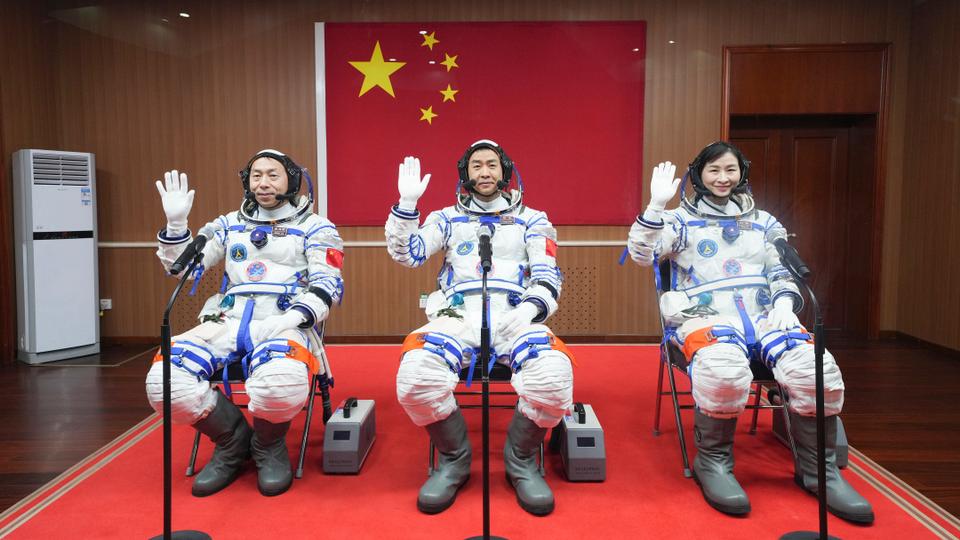China has launched a rocket carrying three astronauts on a mission to complete construction on its new space station.
The rocket carrying the Shenzhou-14 mission with three Chinese astronauts lifts off at the Jiuquan Satellite Launch Center in Northwest China’s Gansu province in June 2022, the latest milestone in Beijing’s drive to become a major space power.
The Shenzhou-14 crew will spend six months on the Tiangong station, during which it will oversee the addition of two laboratory modules to join the main Tianhe living space that was launched in April 2021.
The space station, when completed by the year-end, will lay a significant milestone in China’s three-decade-long crewed space program, first approved in 1992.
The completion of the structure, about a fifth of the International Space Station (ISS) by mass, is a source of pride among common Chinese people, and caps President Xi Jinping’s 10 years as leader of the ruling Communist Party.
They will also install equipment inside and outside the space station and carry out a range of scientific research.
China’s space program launched its first astronaut into orbit in 2003, making it only the third country to do so on its own after the former Soviet Union and the United States.
It has landed robot rovers on the moon and placed one on Mars last year. China has also returned lunar samples and officials have discussed a possible crewed mission to the moon.
The space station is designed for a lifespan of at least 10 years.










